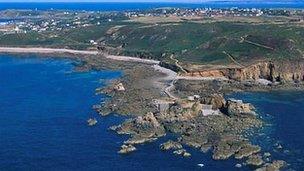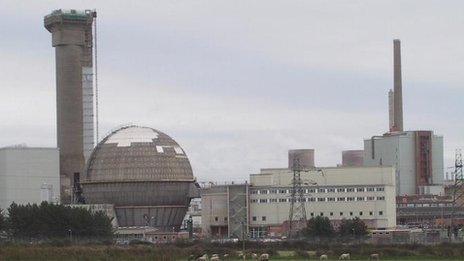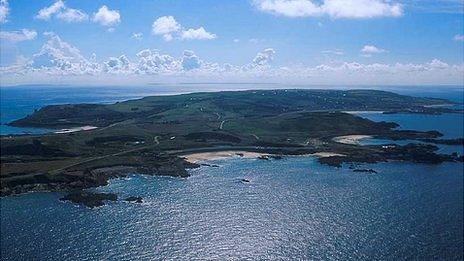Alderney Renewable Energy signs 'significant' deals
- Published

The sea around Alderney has been described as favourable and accessible for producing tidal power
Two agreements have been signed aimed at creating one of the most significant tidal power sites in Europe, Alderney Renewable Energy has announced.
The first was for the development of tidal arrays in Alderney's waters.
The second involves the development of an electricity interconnector cable between France, Alderney and Britain.
Paul Clark, chief executive officer, said it was a move towards the creation off Alderney of one of Europe's largest tidal stream developments.
Alderney Renewable Energy (ARE) was set up in 2004 and holds an exclusive licence to commercially develop tidal and wave power around the coast of the northern most of the Channel Islands.
The first agreement was signed with French industrial group DCNS and the second with ARE, its partner Transmission Capital and the French grid operator RTE.
ARE said the electricity interconnector cable between France, Alderney and Britain would enable the export of up to four gigawatts of tidal power from Alderney.

Mr Davey said the link would improve the security of energy supplies
It said the cable, known as the FABLink, could also be used as a power trading link between the two countries.
The agreements were signed at the Anglo-French summit held in Paris, with the French Industry Minister Eric Besson and the UK Energy Secretary Ed Davey signing on the behalf of their governments.
Mr Davey said: "We are determined to promote the potential of marine energies. We welcome the plan for a tidal turbine farm off Alderney in the Channel Islands."
He said: "We believe this project could encourage the emergence of industrial co-operation between France and the UK, while opening up new international prospects.
"We acknowledge the importance of developing new electricity interconnectors between our two countries in order to strengthen further the linking of our grids, improve the security of our energy supplies and facilitate the integration of intermittent energy sources."
- Published17 February 2012

- Published16 February 2012

- Published8 July 2011
.jpg)
- Published19 February 2011